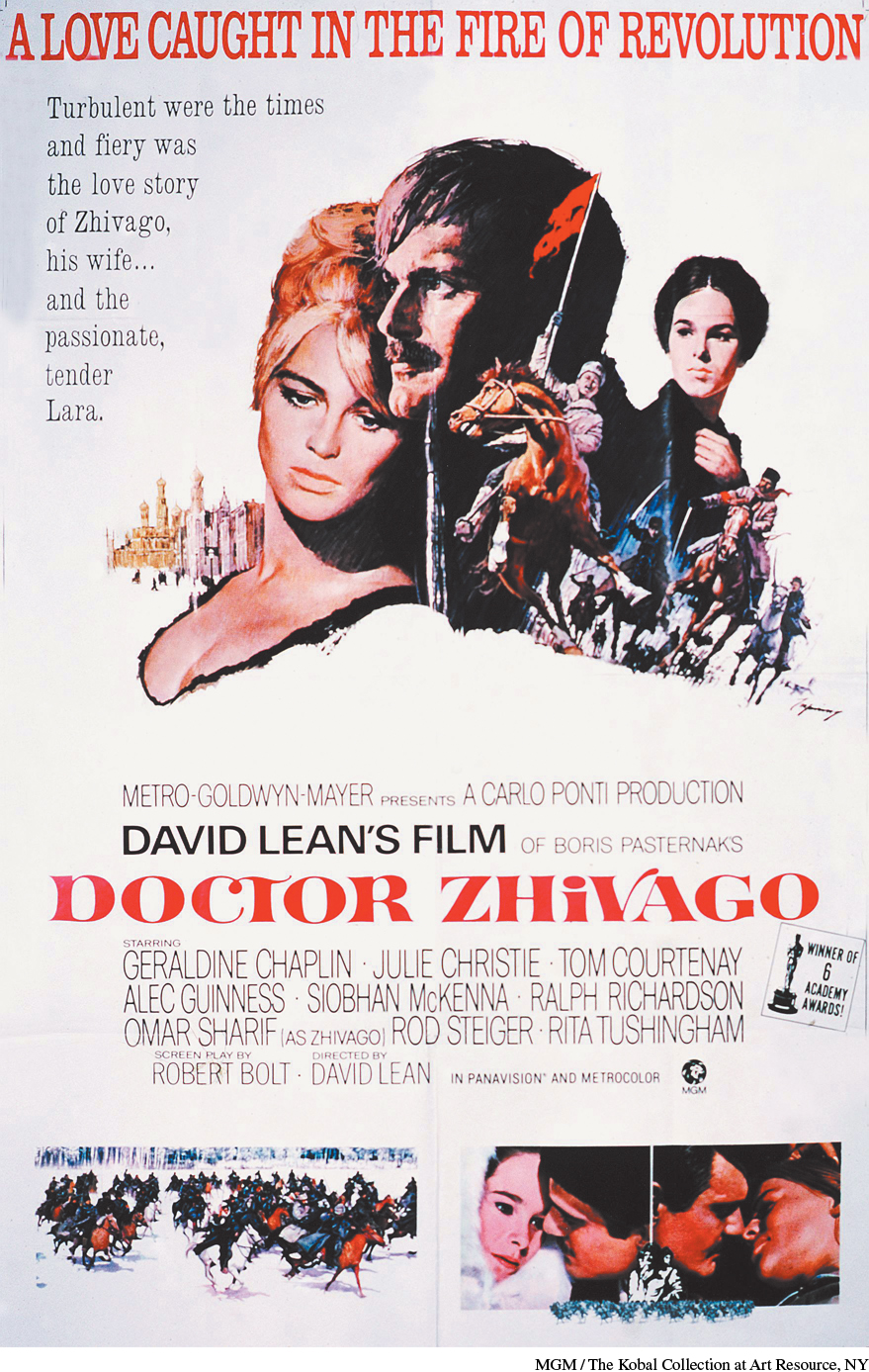Introduction for Chapter 27

LATE IN 1945, WITH THE USSR still reeling from the devastation of World War II, Soviet poet Boris Pasternak began a new project—Doctor Zhivago, a novel about a thoughtful medical man caught up in the whirlwind of the Russian Revolution. Like others in the USSR, Pasternak expected the postwar era to usher in, as he put it, “a great renewal of Russian life.” So he struggled on with his complex epic even as the cold war tensions between the United States and the USSR unfolded. In 1953, Joseph Stalin’s sudden death raised Pasternak’s hopes for his masterpiece to receive a warm reception; those hopes were dashed, however, when the Soviets forbade the book’s publication.
A determined Pasternak bypassed the Soviet authorities and secretly arranged for Doctor Zhivago to be published first in 1957 in Italy—now an anti-Soviet ally of the United States in the cold war. The book became a best seller, showing its readers that the Russian Revolution was far from perfect and so angering the Soviet leadership that Stalin’s successor, Nikita Khrushchev, forced Pasternak to decline the Nobel Prize for Literature awarded him in 1958. The cold war, however, allowed Doctor Zhivago to live on when the famed Hollywood studio MGM turned it into a blockbuster film (1965), seen by tens of millions. By that time, Pasternak had died—a broken victim of cold war persecutions that haunted the world long after the calamitous years of war and genocide had ended.
Following World War II, people in Europe, Japan, and much of East and Southeast Asia were starving and homeless. Evidence of genocide and other inhumanity was everywhere, and nuclear annihilation menaced the world. The old international order was gone, replaced by the rivalry of the United States and the Soviet Union for control of Europe, whose political, social, and economic order was shattered. The nuclear arsenals of these two superpowers—a term coined in 1947—grew massively in the 1950s, but the enemies did not fight outright. Thus, their terrifying rivalry was called the cold war. The cold war divided the West and led to political persecution in many areas, even in the wealthy and secure United States.
At the same time, the defeat of Nazism inspired cautious optimism and a revival of thoughtful reflection like Pasternak’s. Heroic effort had defeated fascism, and that defeat raised hopes that a new age would begin. Atomic science promised advances in medicine, and nuclear energy was seen as a replacement for coal and oil. The creation of the United Nations in 1945 heralded an era of international cooperation. Around the globe, colonial peoples won independence from European masters, while in the United States the civil rights movement grew in strength. The welfare state expanded, and by the end of the 1950s, economic rebirth had made much of Europe more prosperous than ever before. An “economic miracle” had occurred, bringing many Europeans and Americans the highest standard of living they had ever known, including quantities of new consumer goods and simple pleasures such as seeing technicolor films like Doctor Zhivago.
The postwar period became one of open redefinition as the experience of total war transformed both society and the international order. New terms arose in the 1950s, dividing the globe into the first world (the West, or capitalist, bloc of countries); the second world (the East, or socialist, bloc); and the third world (countries emerging from imperial domination). This last term, third world, was meant as a favorable comparison of emerging nations to the Third Estate—that is, the rising citizens of the French Revolution—but is now considered an insulting term.
CHAPTER FOCUS How did the cold war shape the politics, economy, social life, culture, and international concerns of post–World War II Europe?
As the world’s people redefined themselves, the superpowers took the world to the brink of nuclear disaster. From the dropping of the atomic bomb on Japan in 1945 to the Cuban missile crisis of 1962, fear and personal anguish like that suffered by Pasternak gripped much of the world, even in the midst of prosperity and Europe’s rebirth.